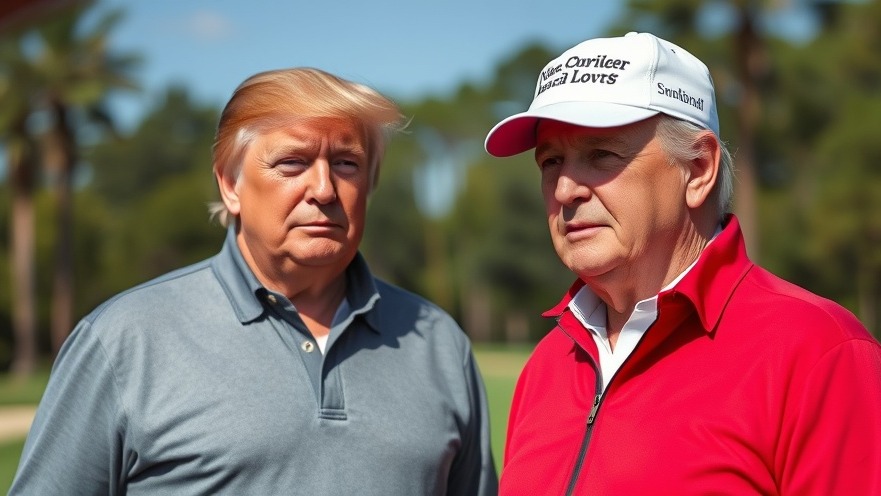
Finland's Strategic Shift: From Serenity to Global Prominence
When President Donald Trump announced the latest trade agreement with Finland, it reflected more than just economic interests—it represented a significant diplomatic pivot. Finnish President Alexander Stubb, armed with golf clubs instead of briefing books, approached the partnership with a unique strategy: building rapport through shared interests. This convivial approach not only endeared him to Trump but also set in motion discussions that would lead to significant military and economic agreements.
Why Golf and Goodwill Matter
The informal meeting on the golf course at Mar-a-Lago was a calculated move by Stubb, once a competitive golfer himself, to create a personal connection with Trump. In an era where diplomacy often hinges on personal relationships, Stubb’s strategy exemplifies how leaders can build alliances beyond traditional political frameworks. Trump’s appreciation for such gestures can significantly influence negotiations, particularly when addressing complex subjects like national security and economic collaboration.
The Icebreaker Order: A Multi-Billion Dollar Deal
At the heart of the agreement is the commitment to acquire up to 11 icebreaker ships, a move that echoes the growing strategic importance of the Arctic region amidst escalating global tensions. The United States aims to bolster its capabilities to navigate and secure trade routes in this increasingly contested area. Four of these vessels will be built in Finland, and seven will follow suit in American shipyards. This deal, estimated at around $6 billion, not only enhances national security but also stimulates jobs and investment within the U.S. maritime sector.
Finland's Role in Arctic Security
Finland's expertise in icebreaker construction—accounting for over 80% of the world’s icebreakers—positions it as an invaluable partner for the U.S. as the nation seeks to expand its Arctic fleet. The Finnish government has seen its defense strategy evolve with the recognition that geopolitical dynamics in the Arctic are shifting. With Russia and China asserting their influence, fostering alliances with Nordic countries like Finland becomes crucial for maintaining stability in the region.
Emotional Ties and Practical Outcomes
This evolving partnership highlights an emotional undercurrent—friendship and mutual respect, embodied in Stubb and Trump's interactions. As they navigate complex issues of foreign policy, such personal ties may foster an environment where practical outcomes can flourish. Notably, the agreement includes provisions for increased cooperation in various sectors, from military engagements to economic investments.
A Look Ahead: Future Implications for Global Diplomacy
As the Arctic region becomes a focal point amidst global rivalry, future agreements and alliances will be pivotal in addressing challenges such as climate change, resource competition, and security threats. The Finnish-American partnership serves as a model of contemporary diplomacy: leveraging personal rapport to forge significant agreements that extend beyond mere policy-making into actionable outcomes that benefit both nations.
Conclusion: Embracing New Alliances in Modern Diplomacy
The unexpected bond formed on the golf course between Stubb and Trump is a testament to the evolving nature of world diplomacy, where personal relationships can lead to substantial national advantages. As global challenges grow more complex, leveraging human connections—akin to the camaraderie seen between these two leaders—might provide the bridge over which contemporary diplomacy must travel.
 Add Element
Add Element  Add Row
Add Row 



Write A Comment